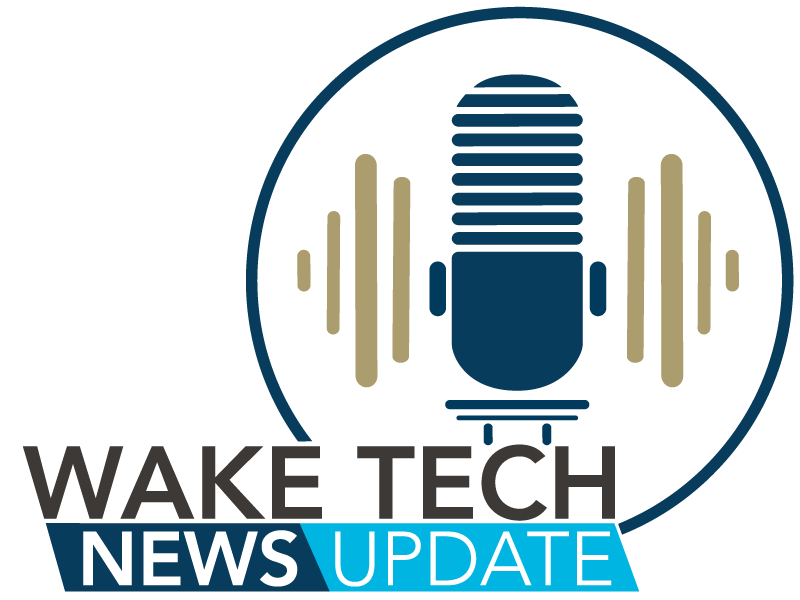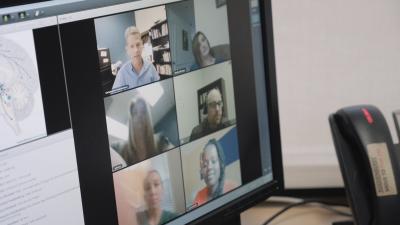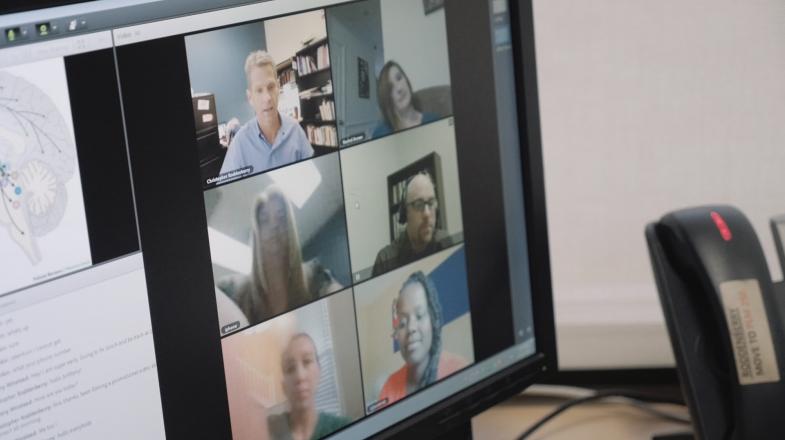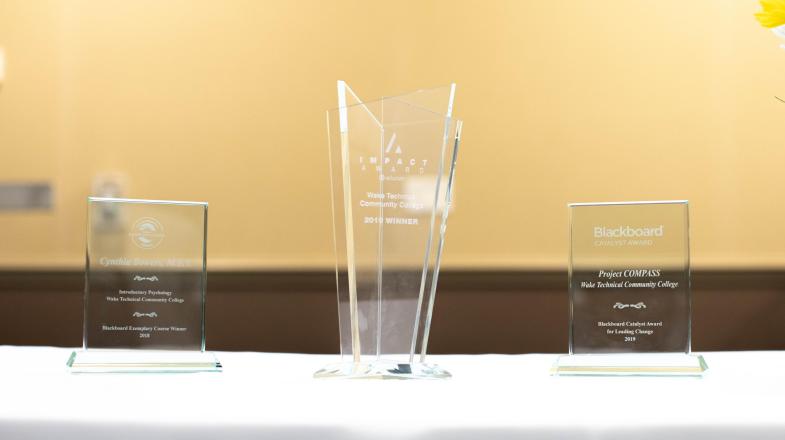Academics
Wake Tech Celebrates Success of Award-Winning Initiative
College’s Research Study Shows Improved Outcomes for Online Students
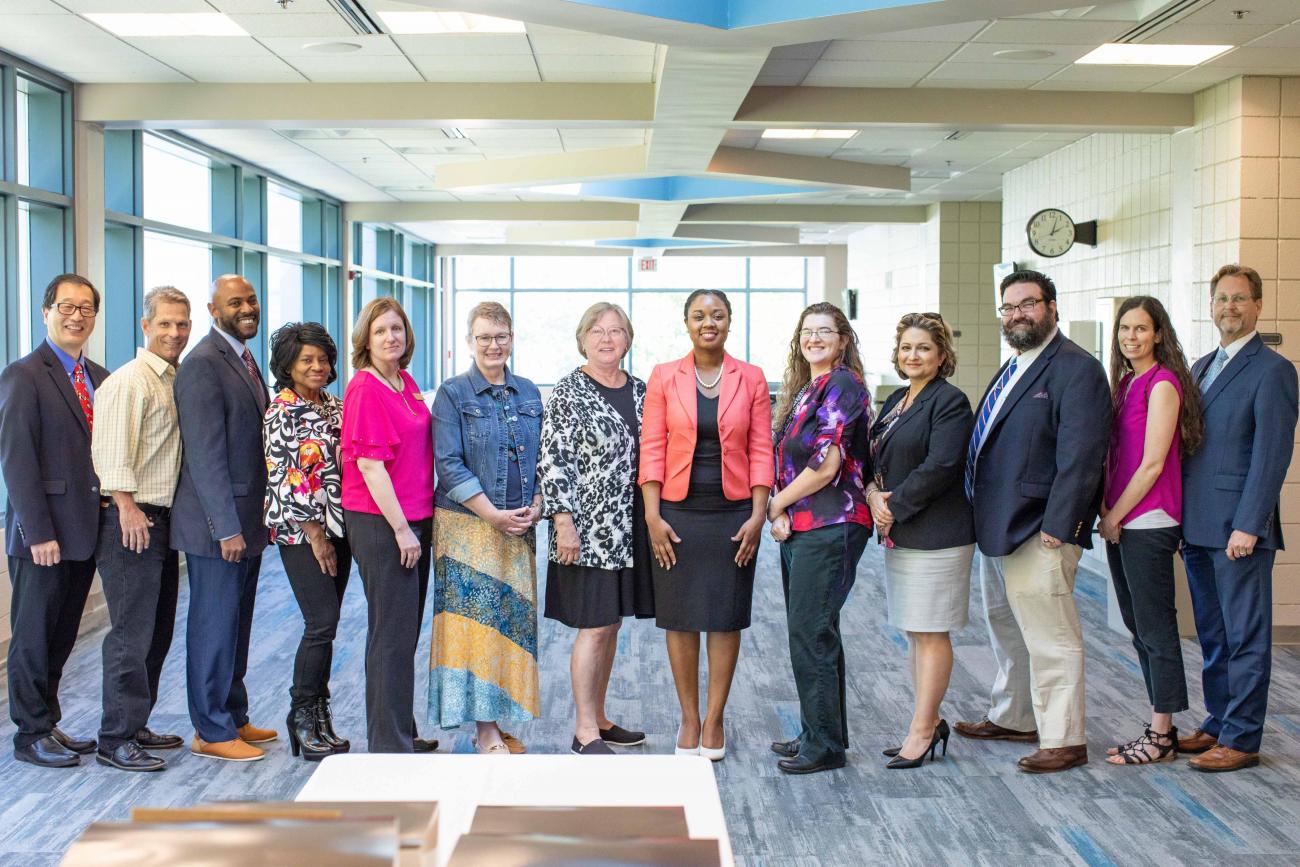
Photo Gallery
RALEIGH, N.C. (September 23, 2019) - Four years ago, Wake Tech embarked on an ambitious plan to change the face of online education. As one of 17 colleges and universities across the country to be awarded a First in the World grant from the U.S. Department of Education, Wake Tech received $2.7 million dollars. The college used the funds to find out how technology could be leveraged to increase retention and success among students of color in online courses. Today, the college celebrated the completion of the grant project and the research it yielded.
“If the research had been available,” said Senior Vice President Bryan Ryan, “we would have used it! But it simply wasn’t there. Sometimes you have to do it yourself!”
Wake Tech’s initiative was called Project COMPASS and focused on three high-enrollment online courses: General Psychology (PSY 150), Introduction to Business (BUS 110), and Introduction to Computers (CIS 110). These courses traditionally have lower-than-average student success rates and large achievement gaps between demographic groups.
“Online learning can be a lonely experience,” said psychology professor Dr. Chris Roddenberry. “We want to create a feeling of social connection. Students who feel socially engaged are more successful.”
Faculty worked with instructional designers and administrators to develop online courses that were more engaging. Online meeting software allowed students to interact with their instructors – and each other. Students were also able to attend virtual club meetings and utilize online tutoring and resource centers. The college launched a number of innovations aimed at online students: An online video streaming service – dubbed “Eagle Stream” – that allowed students to experience virtual campus events and activities; two new video production studios that made it possible for students and faculty to create videos for integration into courses; and OER (open educational resource) textbooks and course materials.
Treatment instructors in the three courses used the innovations, while those teaching control sections continued with traditional online methods. The research showed that:
- Students using the new tools were less likely to drop or withdraw from the course;
- Students of color were more likely to be successful (earn a grade of C or higher); and
- Students were more likely to continue into the next academic year.
To support unbiased and quality research results, Wake Tech collaborated with a third-party evaluation team at the University of North Carolina at Greensboro.
“Project COMPASS has demonstrated that technology doesn’t have to equal isolation,” said Laila Shahid-El, Project Director for COMPASS. “Instead, technology can be leveraged to drive student engagement in the online classroom. It also shows that being intentional about student communication and inclusion, rather than leaving that to chance, can improve outcomes for learners, especially those from historically disadvantaged groups.”
For their efforts, the grant team was recognized with three international awards: the 2018 Blackboard Exemplary Course Award (one of 11 winners worldwide), the 2019 Ellucian Impact Award (one of three winners worldwide), and the 2019 Blackboard Catalyst Award for Leading Change (one of six winners worldwide in this category).
Wake Tech’s goal is to scale the COMPASS intervention to other courses and other colleges. The team is developing formal training modules for instructors who want to adopt the strategies. The First in the World project was one of the largest grant awards in Wake Tech’s history, and the college’s first randomized controlled trial.
